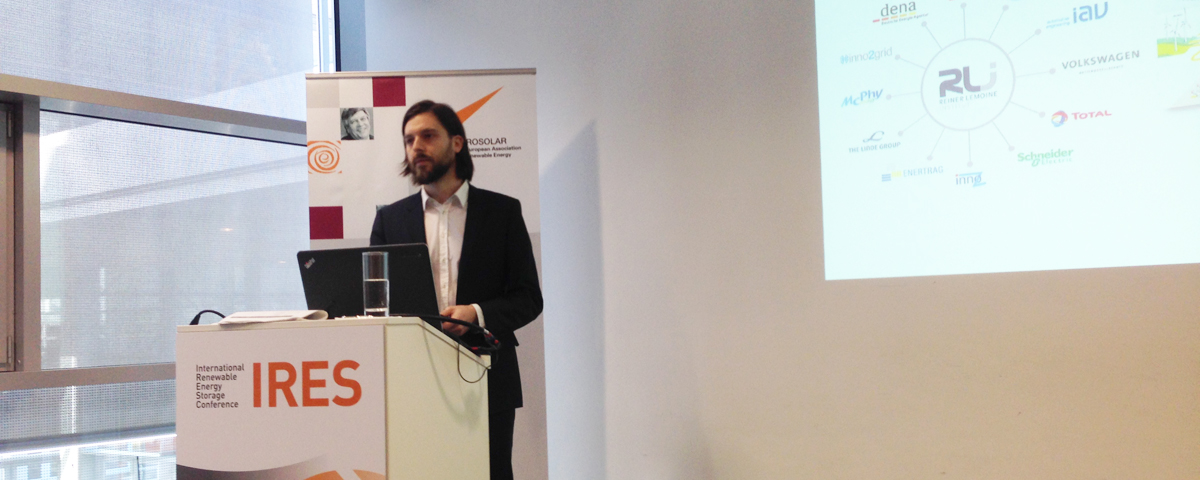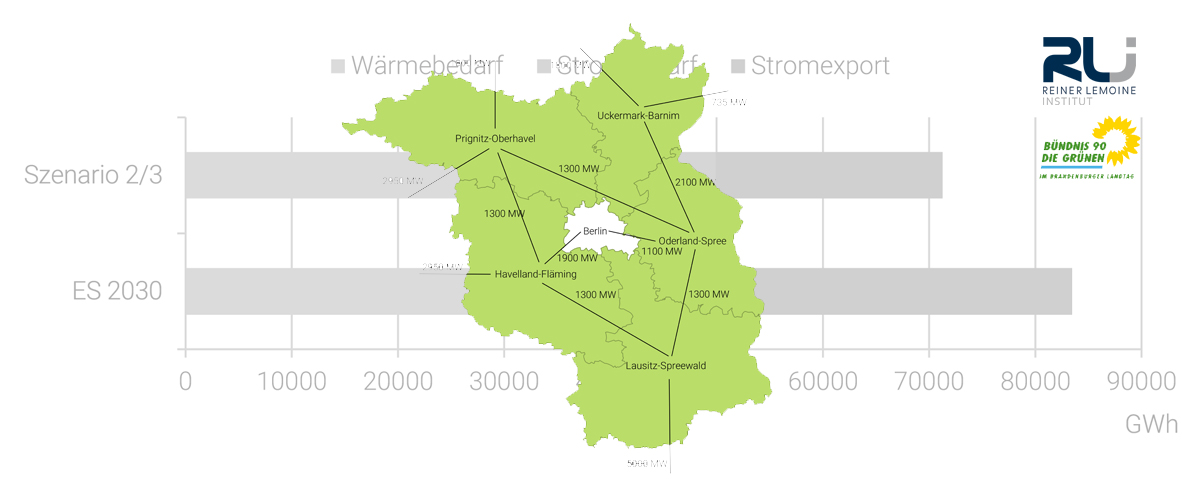
RLI contributions at IRES 2017
22. March 2017
Expert talk on the the Study “Analysis of Brandenburg’s Energy Strategy”
22. March 2017Addressing Energy System Modelling Challenges: The Contribution of the Open Energy Modelling Framework – oemof (Hilpert et al. 2017)

Simon Hilpert, Stephan Günther, Cord Kaldemeyer, Uwe Krien, Guido Pleßmann, Frauke Wiese, Clemens Wingenbach
The process of modelling energy systems is accompanied by challenges inherently connected with mathematical modelling. However, due to modern realities in the 21st century, existing challenges are gaining in magnitude and are supplemented with new ones. Modellers are confronted with a rising complexity of energy systems and high uncertainties on different levels. In addition, interdisciplinary modelling is necessary for getting insight in mechanisms of an integrated world. At the same time models need to meet scientific standards as public acceptance becomes increasingly important. In this intricate environment model application as well as result communication and interpretation is also getting more difficult.
In this paper we present the open energy modelling framework (oemof) as a novel approach for energy system modelling and derive its contribution to existing challenges. Therefore, based on literature review, we outline challenges for energy system modelling as well as existing and emerging approaches. Based on a description of the philosophy and elementary structural elements of oemof, a qualitative analysis of the framework with regard to the challenges is undertaken. Inherent features of oemof such as the open source, open data, non-proprietary and collaborative modelling approach are preconditions to meet modern realities of energy modelling. Additionally, a generic basis with an object-oriented implementation allows to tackle challenges related to complexity of highly integrated future energy systems and sets the foundation to address uncertainty in the future. Experiences from the collaborative modelling approach can enrich interdisciplinary modelling activities.
Our analysis concludes that there are remaining challenges that can neither be tackled by a model nor a modelling framework. Among these are problems connected to result communication and interpretation.
In this paper we present the open energy modelling framework (oemof) as a novel approach for energy system modelling and derive its contribution to existing challenges. Therefore, based on literature review, we outline challenges for energy system modelling as well as existing and emerging approaches. Based on a description of the philosophy and elementary structural elements of oemof, a qualitative analysis of the framework with regard to the challenges is undertaken. Inherent features of oemof such as the open source, open data, non-proprietary and collaborative modelling approach are preconditions to meet modern realities of energy modelling. Additionally, a generic basis with an object-oriented implementation allows to tackle challenges related to complexity of highly integrated future energy systems and sets the foundation to address uncertainty in the future. Experiences from the collaborative modelling approach can enrich interdisciplinary modelling activities.
Our analysis concludes that there are remaining challenges that can neither be tackled by a model nor a modelling framework. Among these are problems connected to result communication and interpretation.




